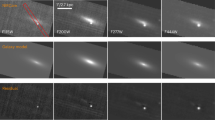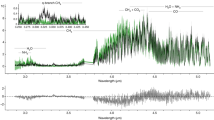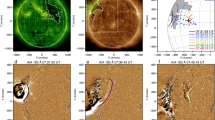Abstract
THE formula given by Gamow (Zeits. f. Phys., 52, p. 512; 1928), for the probability that an α-particle will penetrate the nucleus of an atom with which it collides, can be readily adapted to the case of proton-impacts. These have only half the charge of an α-particle, and for the same energy twice the velocity, so that under conditions approaching thermodynamical equilibrium they have an enormously greater penetrating-power. We have investigated the possibility that in the interior of stars the process should actually occur with appreciable frequency, and we find that for the heaviest elements the probability is extremely small. For the lightest, however, we obtain an average life varying roughly from 10 seconds for helium to 100 years for carbon in a fairly typical case. The protons that are most effective, when their number is taken into account, are those with from three to four times the most probable velocity of the Maxwell distribution.
This is a preview of subscription content, access via your institution
Access options
Subscribe to this journal
Receive 51 print issues and online access
$199.00 per year
only $3.90 per issue
Buy this article
- Purchase on Springer Link
- Instant access to full article PDF
Prices may be subject to local taxes which are calculated during checkout
Similar content being viewed by others
Author information
Authors and Affiliations
Rights and permissions
About this article
Cite this article
D'E. ATKINSON, R., HOUTERMANS, F. Transmutation of the Lighter Elements in Stars. Nature 123, 567–568 (1929). https://doi.org/10.1038/123567b0
Issue Date:
DOI: https://doi.org/10.1038/123567b0
Comments
By submitting a comment you agree to abide by our Terms and Community Guidelines. If you find something abusive or that does not comply with our terms or guidelines please flag it as inappropriate.



